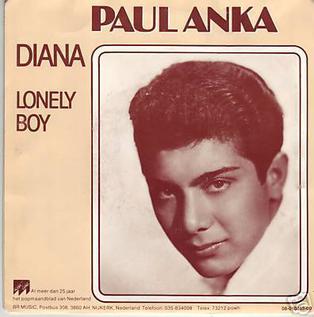"Ça, C'est L'amour" is a popular song by Cole Porter, published in 1957. It was introduced in the film Les Girls.
Popular music is music with wide appeal that is typically distributed to large audiences through the music industry. These forms and styles can be enjoyed and performed by people with little or no musical training. It stands in contrast to both art music and traditional or "folk" music. Art music was historically disseminated through the performances of written music, although since the beginning of the recording industry, it is also disseminated through recordings. Traditional music forms such as early blues songs or hymns were passed along orally, or to smaller, local audiences.

A song is a single work of music that is typically intended to be sung by the human voice with distinct and fixed pitches and patterns using sound and silence and a variety of forms that often include the repetition of sections. Through semantic widening, a broader sense of the word "song" may refer to instrumentals.

Cole Albert Porter was an American composer and songwriter. Born to a wealthy family in Indiana, he defied the wishes of his domineering grandfather and took up music as a profession. Classically trained, he was drawn to musical theatre. After a slow start, he began to achieve success in the 1920s, and by the 1930s he was one of the major songwriters for the Broadway musical stage. Unlike many successful Broadway composers, Porter wrote the lyrics as well as the music for his songs.
The recording by Tony Bennett was made in New York City on September 19, 1957, (mx. CO 59855) and released by Columbia Records as catalog number 41032. It reached the Billboard magazine charts on November 18, 1957, its only week on the chart. On the Disk Jockey chart, it peaked at #22; on the composite chart of the top 100 songs, it reached #96. [1]

Anthony Dominick Benedetto, known professionally as Tony Bennett, is an American singer of traditional pop standards, big band, show tunes, and jazz. He is also a painter, having created works under the name Anthony Benedetto that are on permanent public display in several institutions. He is the founder of the Frank Sinatra School of the Arts in Astoria, Queens, New York.

Columbia Records is an American record label owned by Sony Music Entertainment, a subsidiary of Sony Corporation of America, the North American division of Japanese conglomerate Sony. It was founded in 1887, evolving from the American Graphophone Company, the successor to the Volta Graphophone Company. Columbia is the oldest surviving brand name in the recorded sound business, and the second major company to produce records. From 1961 to 1990, Columbia recordings were released outside North America under the name CBS Records to avoid confusion with EMI's Columbia Graphophone Company. Columbia is one of Sony Music's four flagship record labels, alongside former longtime rival RCA Records, as well as Arista Records and Epic Records.
The Billboard charts tabulate the relative weekly popularity of songs and albums in the United States and elsewhere. The results are published in Billboard magazine. Billboard biz, the online extension of the Billboard charts, provides additional weekly charts. There are also Year End charts. The charts may be dedicated to specific genre such as R&B, country or rock, or they may cover all genres. The charts can be ranked according to sales, streams or airplay, and for main song charts such as the Hot 100 song chart, all three pools of data are used to compile the charts. For the Billboard 200 album chart, streams and track sales are included in addition to album sales.





